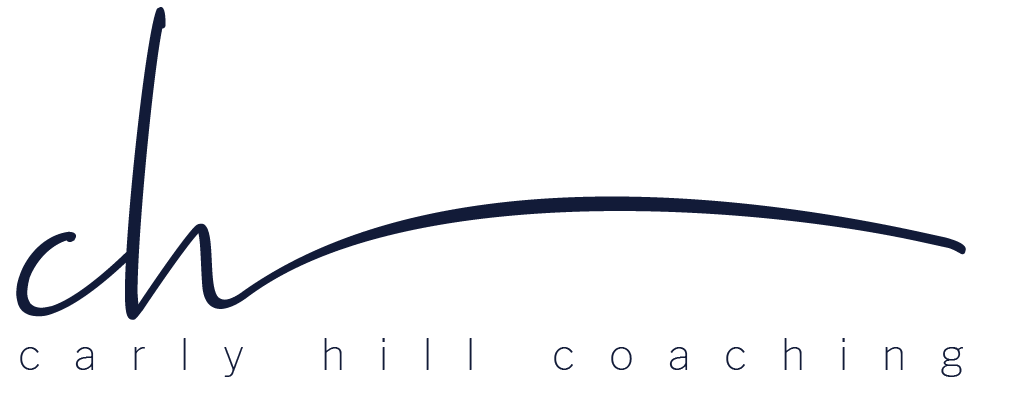Carly Hill Takes you From Therapist to Coach with 3x the income
Creating a Scalable Coaching Business Model

FSDAVCFEBFEVSDDVFSD

FSDAVCFEBFEVSDDVFSD

FSDAVCFEBFEVSDDVFSD
Business Growth
Designing a Scalable Practice

A scalable coaching business allows therapists to increase revenue and serve more clients without significantly increasing workload. Shifting from one-on-one sessions to group coaching or online courses creates more flexibility while reaching a broader audience. These formats provide value while maximizing time and impact.
To build a sustainable model, therapists should create structured programs that can be delivered to multiple clients at once. Group coaching fosters community, while online courses offer self-paced learning. Incorporating technology to automate scheduling and communication helps streamline operations, allowing therapists to focus on client results and long-term business growth.

Expanding Through Group Programs
Group coaching programs are one of the most effective strategies for creating a scalable coaching business. By working with multiple clients at once, therapists can increase their income without adding extra hours to their schedules. These programs provide shared learning experiences, peer accountability, and a sense of connection that enhances the coaching process. Clients often benefit from seeing how others approach similar challenges, creating deeper insights and collective growth.
To deliver successful group coaching programs, therapists should begin with a clearly structured framework. Outlining session objectives and creating a curriculum tailored to the group’s needs ensures each participant receives consistent value. It’s also important to consider group size, session frequency, and feedback loops to maintain quality and engagement over time. These elements support both client transformation and therapist business growth.
Utilizing virtual tools like Zoom, scheduling platforms, or course management systems simplifies the logistics of group coaching. With the right systems in place, therapists can streamline delivery while maintaining a personalized and interactive environment that promotes long-term client success.
Automating for Efficiency

Automation is essential for running a scalable coaching business. By streamlining repetitive administrative tasks like scheduling, billing, and onboarding, therapists can focus their energy on coaching itself. Coaching automation strategies help reduce manual errors and save time, which is critical as your client base grows. Automation also enhances the client experience by ensuring timely communication and a smooth onboarding process.
Using tools that manage your calendar, client records, and payment systems can make day-to-day operations much more efficient. CRM platforms and scheduling apps allow therapists to keep everything organized without the need for constant oversight. These systems support therapist business growth by enabling more consistent service and giving coaches the space to develop content, scale their offerings, and serve more clients with less effort.

Incorporating automation into your coaching business allows for consistent and reliable communication with clients. Automated email sequences can provide session reminders, share educational content, and guide potential clients through the decision-making process. These consistent touchpoints help nurture leads and maintain engagement between sessions, which builds trust over time. When clients feel supported and informed, they are more likely to stay committed to the coaching process and refer others to your services.
Coaching automation strategies also help maintain service quality as your business grows. Automating repetitive tasks ensures nothing slips through the cracks and reduces the time spent on back-end operations. This gives therapists more bandwidth to focus on delivering impactful sessions and developing new offerings. By embracing automation, therapists can create a scalable coaching business that is both efficient and client-centered—freeing up time without sacrificing the personalized care that makes coaching effective.
Leveraging Online Courses
Online coaching courses offer therapists an ideal way to scale their business while reaching a wider audience. These courses provide clients with the convenience of self-paced learning, making coaching more accessible and flexible. Therapists can repurpose existing materials into structured modules, designing a comprehensive program that meets specific client needs and supports long-term learning.
Creating online coaching courses also positions therapists as leaders in their niche. Offering high-quality content establishes authority and allows therapist-coaches to attract clients beyond their immediate location. In addition to expanding reach, these programs create passive income streams that support therapist business growth. Regular updates based on client feedback ensure the course stays relevant and effective over time.
Marketing is essential for course success. Promoting content through social media, email campaigns, and strategic SEO increases visibility and drives traffic to your offerings. Collaborating with aligned professionals can also broaden your reach. When combined with effective marketing, online courses become a powerful part of a scalable coaching business that continues growing without relying solely on one-on-one sessions.
Streamlining Operations with Automation
Automating your coaching business is key to scalability. By reducing time spent on repetitive tasks like scheduling and invoicing, therapists can focus more on client growth and service delivery. This creates room for strategic planning and program development.
Tools like automated email sequences, CRM systems, and calendar integrations help maintain consistent client communication. These systems streamline onboarding, send session reminders, and nurture leads—ensuring clients feel supported throughout their journey.
Automation also supports therapist business growth by providing structure. When operations run smoothly behind the scenes, therapists can confidently expand their reach, serve more clients, and maintain a high-quality coaching experience across all service levels.


Automation also supports client engagement and retention by creating consistent and thoughtful communication. Automated reminders for sessions, follow-up emails, and feedback surveys improve the overall client experience and demonstrate reliability and professionalism. These automated touchpoints build trust, increase satisfaction, and foster long-term loyalty. Additionally, the data collected from automation tools offers insights into client behavior, preferences, and patterns—allowing therapists to make informed business decisions. For a scalable coaching business, automation is not optional—it’s essential for growth and sustainability.
Building a Scalable Business Model
Creating a scalable coaching business model starts with strategic planning and systematized processes. Therapists should clarify their niche and target audience to develop offerings that meet specific client needs. Designing signature programs helps standardize delivery and simplifies marketing, making services more accessible and consistent as the client base grows.
Financial planning is essential for long-term growth. Therapists should review pricing structures to ensure sustainability and value alignment. Diversifying revenue through group coaching, online coaching courses, and digital products supports therapist business growth and reduces dependence on one-on-one sessions.
Ongoing professional development also plays a key role in scalability. Staying current with coaching trends, refining skills, and engaging with supportive communities enhances service quality. This continued growth allows therapists to evolve and scale effectively.
Carly Hill’s Scalable Coaching Framework

Carly Hill Coaching provides a clear and structured path for therapists looking to build a scalable coaching business. Her programs are tailored to help therapist-coaches transition their existing skill set into formats like group coaching programs and online coaching courses. With detailed guidance, Carly walks therapists through each phase of designing services that reach more people without overextending their time or energy.
The framework emphasizes sustainable growth, efficient systems, and intentional service delivery. Therapists learn to create scalable coaching offers while staying aligned with their personal values and professional strengths. By integrating coaching automation strategies and practical tools, Carly’s approach helps therapists simplify operations, increase income potential, and confidently expand their impact. Her expertise bridges the gap between clinical work and coaching entrepreneurship, offering both structure and support for lasting success.

Building a Sustainable and Scalable Practice
Transitioning to a scalable coaching business model allows therapists to increase their reach without sacrificing quality of service or personal well-being. By integrating group coaching programs, online coaching courses, and automation tools, therapists can serve more clients efficiently while maintaining work-life balance. This model supports long-term therapist business growth by reducing dependency on one-on-one sessions and creating multiple income streams. Embracing scalability is not just a business decision—it’s a strategy for creating a flexible, sustainable practice that adapts to the evolving coaching landscape.
Carly Hill Coaching offers therapists the structure and support needed to make this transition with confidence. Her programs are specifically designed to help therapists navigate the challenges of scaling while staying aligned with their values and strengths. Through step-by-step guidance, Carly equips therapist-coaches with the tools to build a sustainable coaching business that maximizes both impact and revenue. The result is a practice rooted in clarity, connection, and long-term success.

Carly Hill
LCSW; Author
Stay Up-to-date with our Content
Subscribe to learn more about our mission!
Stay Up-to-date With Our Content
Subscribe to learn more!
Free Resources
Free Resources
Copyright © 2026 Carly Hill Coaching LLC


